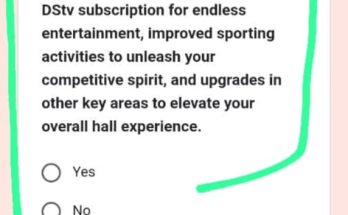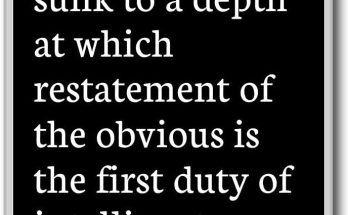By: Bukola Odusanya
On the 14th of February 2022, the Academic staff union of Nigeria embarked on a four-week warning strike action which spiraled into months of suspended academic activities. The last eight months were plagued by negotiations upon negotiation, ASUU is simply requesting that the government fulfills its educational objectives to the Nigerian people, but it is common knowledge that the Nigerian government has a distant relationship with its responsibilities.
Now fast-forward to October 14th of 2022, exactly eight months after, the federal government claims to agree with the requests of the association. It included remunerations for the past months, only for the government to take a full-on 360 and pay half of October’s salary- what kind of play is this?
This seems to be the situation in Nigeria, a poorly scripted drama with an oligarchic group as the cast. The movie plots around various stories – “The evil snake that swallowed 36 million Naira”, “The fainting of the corrupt minister”, and “Who gave the order”, “Nigeria the killer of dreams” amongst many others. Unfortunately, some of us have formed some kind of alliance with these actors based on nepotism, tribalism or just plain ignorance.
The Nigerian audience sits glued to her seat, a bag of dried corn in their hands. A lot of us have forgotten the storyline, we are lost in the world of dramas. Our eyes are glued to the screen, and we are watching shocked and appalled. In our eyes swarm a hoard of insects, but we dare not shut it – The last person you saw sleeping never woke up.
So What Is The Real Script?
The area now known as Nigeria was created in 1914, through the amalgamation of the southern, and northern provinces. She was granted her independence in October 1960; six years later Nigeria experienced a civil war. How does a people struggle for independence, only to get it then begin to fight themselves? This reality offers great insight into the foundational issues battling Nigeria, the most prominent being ineffective leadership. Chinua Achebe was right, after all.
This conglomerate called Nigeria has experienced both civilian and military rule, with the last military regime ending in the year 1999. Since then Nigeria has celebrated 21 years of being a democratic state, running on a parody ideology of the rule of law, the supremacy of the Constitution and the power of the people.
As many as the vices of the government are, every four years, we go through a democratic ritual of elections, where we elect leaders and representatives to various elective positions, but the political class project it as though it was their exclusive ritual and the people have no stakes in it; or how do we explain the entitlement of the “EMI Lokan” crooner who sees Nigeria’s top seat as his acclaimed right. However, elections are a People’s affair, and all protocols must be duly observed.
We Need To See Beyond What They Show Us
The contention usually is this; knowing Nigeria has it is – the theatrics in its bureaucracy – we tend to wonder if our votes really count? Let’s analyse this briefly
If an electoral process is entirely irrelevant, why would politicians invest so much in campaigns or even make attempts to rig the election? In the June 12, 1993, election, we see a clear-cut example of the degree to which your votes count, late Alhaji Moshod Abiola was the most popular choice among the people, and he won the election. This was said to be the fairest election in Nigeria’s history; yet it was annulled by the former head of state, Ibrahim Babangida. The people chose him, he won, but Babangida, playing the script of the powers that be, denied the people their mandate.
The electoral body parades itself as an independent body, but to put trust in a government-controlled umpire would be naive, here is what we know for now. The Bimodal Voter Accreditation System (BVAS) is an electronic style of voting that uses dual fingerprints and a facial biometric accreditation process would greatly curtail the hassle of falsification. The INEC Result Viewing portal would allow openness in the collation of results.
On the 20th Of October 2020, the baton of bringing forth change was handed to us by our fallen soldiers. Voting is more than a hot debate of the most likely-to-win candidate, political philosophies, or tribalism. If we want to be able to close our eyes as Nigerians we need to pick leaders based on a well-evaluated value system.
No one knows for certain what the upcoming elections hold for us, nonetheless, at this point political apathy is deadly. This is more than a civic duty, it’s the only shot we have at putting a stop to this horror movie we have been forced to see.



